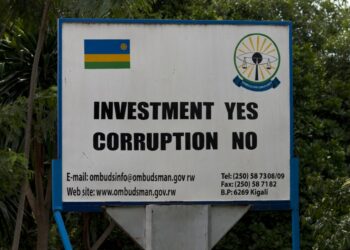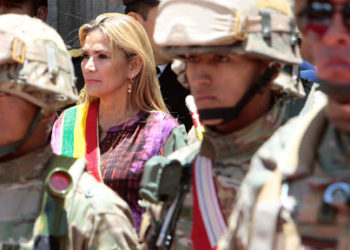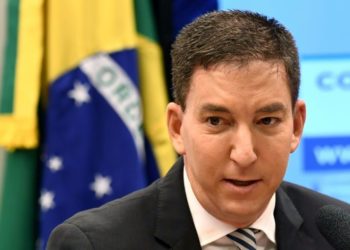Former Brazilian president Luiz Inácio Lula da Silva was released from prison on Friday after being jailed since April 2018 on highly contested corruption charges.
His release was made possible by a major Supreme Court ruling issued Thursday night.
The court ruled that it is unconstitutional to imprison a defendant until all of their appeals are exhausted – a decision that paved the way for Lula’s release since the former president still has a number of appeals pending in his case.
Lawyers for the former president filed a motion Friday demanding his “immediate release” after Thursday night’s ruling, and hours later, the motion was granted by Curitiba Judge Danilo Perreira Jr.
Lula walked out of prison on Friday afternoon, surrounded by his family and a large crowd of ecstatic supporters, who chanted “Free Lula” and “Lula, warrior of the Brazilian people.”
‘Political Prisoner’
A founder of the leftist Workers’ Party (PT), Lula was president from 2003 to 2010 and remains one of the most popular political figures in the country.
His imprisonment came while he was seeking re-election in 2018, resulting in him being barred from the election. Opinion polls showed that he led the race by a wide margin and was all but certain to resume the presidency, even running from jail.
The PT replaced Lula with Fernando Haddad, a lesser-known former mayor of Sao Paulo who was unable to garner the same level of support, resulting in the election of far-right President Jair Bolsonaro.
Lula has adamantly maintained that he is innocent and that the corruption charges levied against him were politically motivated.
In June, the Intercept published explosive leaked telegram messages between the judge in his case and prosecutors that lend credence to the former president’s position.
#ATENCIÓN | Tras el fallo del Tribunal Supremo de #Brasil, @LulaOficial es declarado en libertad después de 580 días en prisión. #LulaLibre pic.twitter.com/oiaK8FRr0t
— Radio Pichincha (@radio_pichincha) November 8, 2019
The charges against Lula were part of a broader, high profile crackdown on corruption in Brazil called “Operation Lava Jato,” or “Car Wash.”
Lava Jato prosecutors alleged that Lula had accepted a beach-front apartment as a bride from the state oil company, Petrobras, in exchange for the president appointing certain individuals to positions in the company.
Lula and his lawyers, however, maintain that he never even owned the apartment in question.
His conviction was based largely on plea-bargain testimony from a former Petrobras official who received a lighter sentence in an unrelated corruption case in exchange for his testimony against the former president.
Prosecutors produced no records indicating Lula had any connection to the apartment, and photographs show that the apartment was not lived in by anyone at the time of his arrest.
The judge who convicted Lula, Sergio Moro, was ultimately promoted to justice minister by Bolsonaro.
The leaked telegram messages published by the Intercept, which have created a political firestorm in Brazil, show improper communication between Moro and prosecutors.
Throughout the proceedings in Lula’s case, Moro had been offering advice to prosecutors and coordinating with them in an apparent effort to aid their case.
Other leaked messages show that the Lava Jato prosecutors, who had long maintained that they were politically neutral, had been discussing how to prevent Lula and the PT from returning from power.
Fight Goes On
In interviews from prison, Lula has said he will not accept any conclusion short of his total “exoneration.”
In September, he rejected an offer from prosecutors to be transferred from solidarity confinement to house arrest, saying he would not exchange his “dignity” for his freedom.
Following his release, Lula addressed an emotional crowd on a stage outside the prison that was constructed on the site of a vigil maintained by a committed group of supporters, who wished him a good morning, afternoon, and night every day.
In an impassioned speech, he vowed to “continue fighting” for the people of Brazil and thanked his supporters for demonstrating every day during his imprisonment, telling them it meant a lot to him.
Before founding PT and ultimately becoming president, Lula was a major figure in the revolution that overthrew the country’s former military dictatorship. He had grown up in poverty and lost one of his fingers in an accident while working at an automobile factory when he was 19-years-old.
During his tenure as president, Lula oversaw the creation of major social programs that lifted millions out of poverty in what the World Bank has described as the “golden decade” of Brazil.
Lava Jato prosecutors have filed seven other charges against Lula that are pending. The former president denies all of them.
“Our judicial battle continues,” Lula’s lawyer, Cristiano Zanin said Friday. “Our focus is to get the legal case nullified.”
This story was updated at 3:54 p.m. (ET) following Lula’s release from prison.
More on the Subject
Brazil to Auction Off Massive Oil Reserves to Foreign Companies























